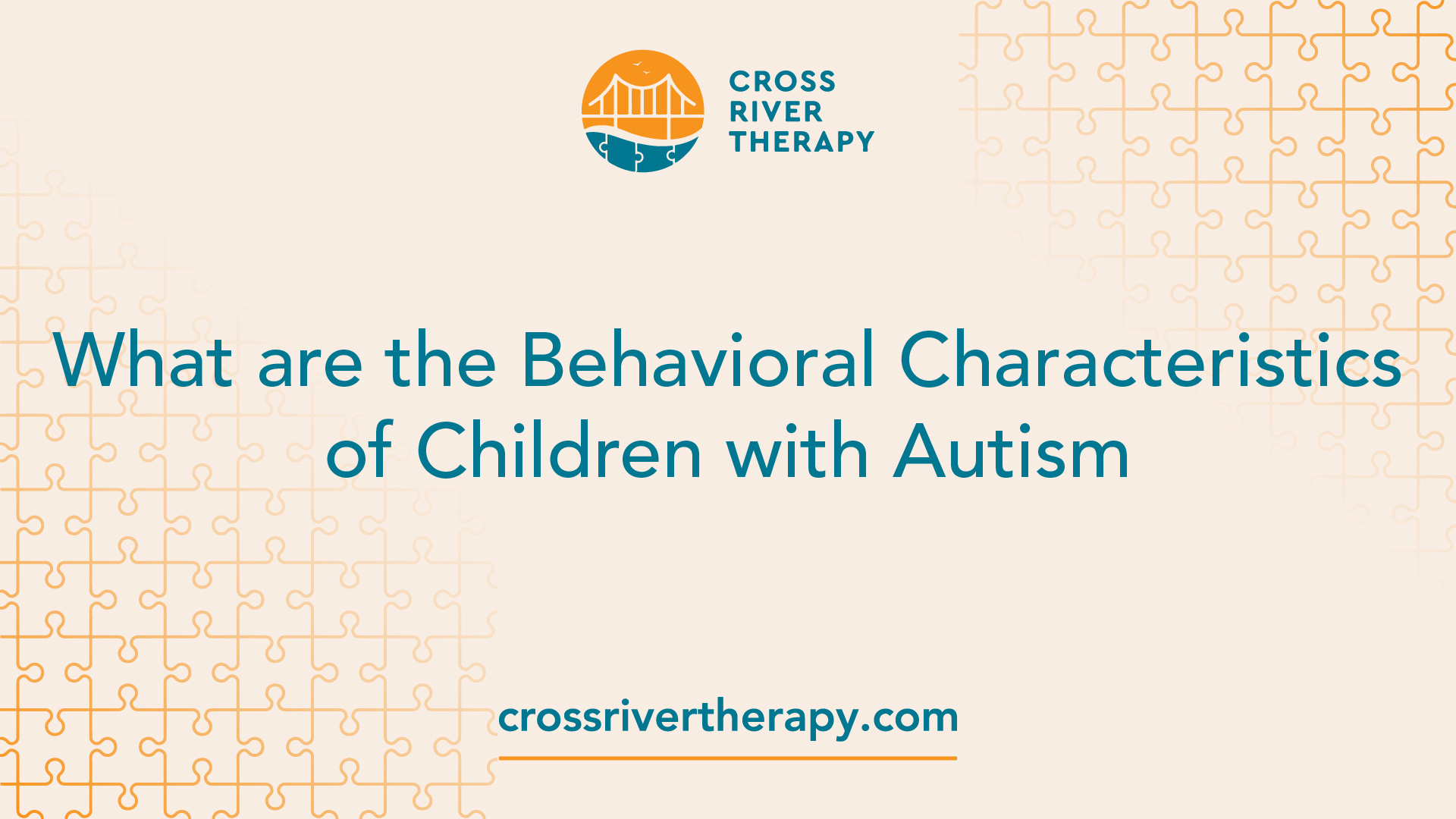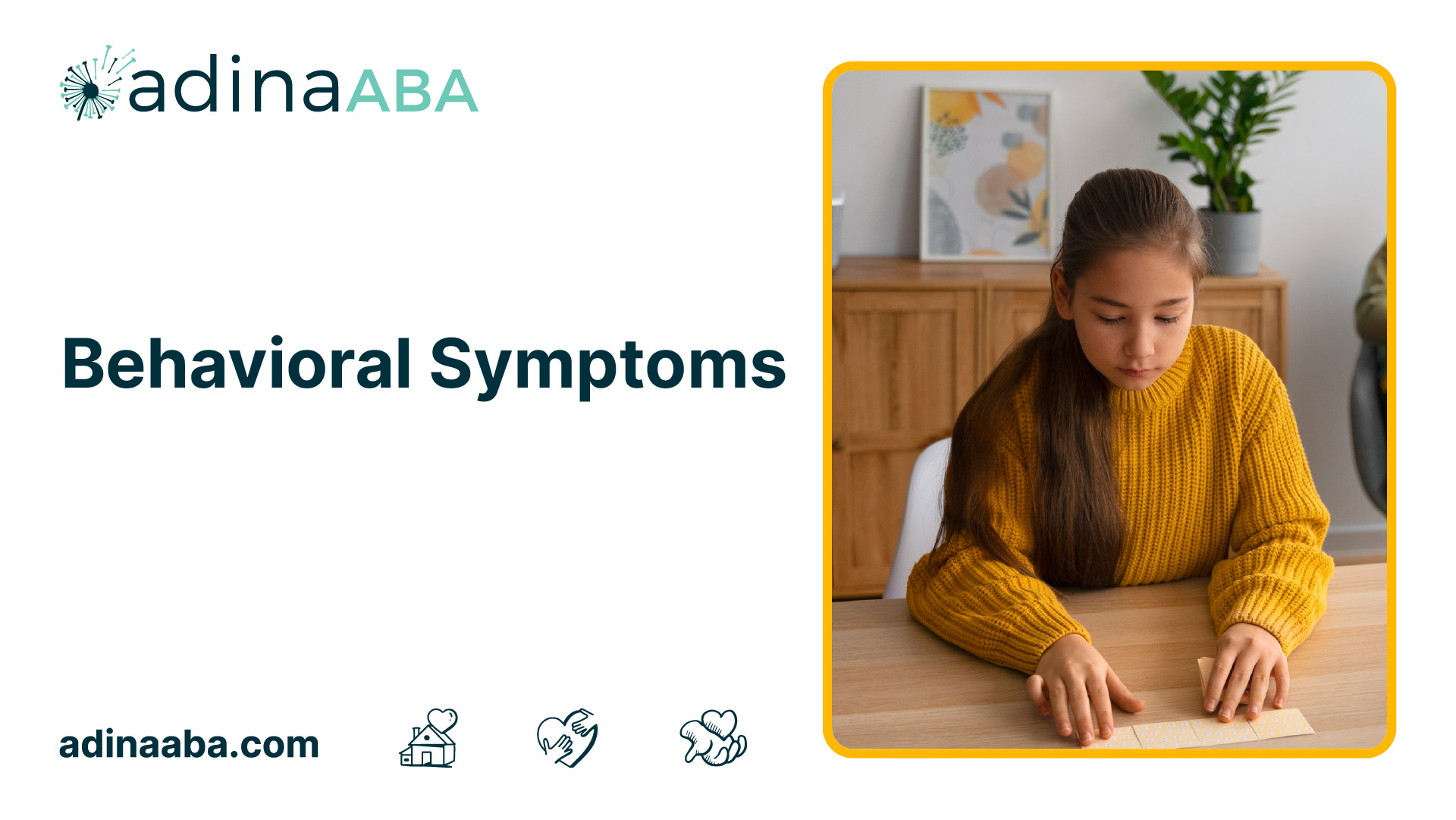5 ways Autism Behavioral Therapy reduce anxiety
5 ways Autism Behavioral Therapy reduce anxiety
Blog Article
Trick Symptoms And Signs to Acknowledge in Individuals With Behavioral Autism
When you experience a person with behavioral autism, identifying key signs and signs and symptoms is important. You could notice challenges in social interactions and communication, along with a strong need for regimens. Furthermore, sensory level of sensitivities can bring about frustrating experiences. Understanding these attributes can enhance your assistance and interventions, yet there's more to uncover concerning how these behaviors materialize in daily scenarios. Allow's explore what these signs really appear like.
Obstacles in Social Communications
When you connect with someone on the autism range, you might discover they struggle with social signs and interaction. These challenges can make social communications feel frustrating for them.
Furthermore, you may locate that they favor regimens and familiar settings, which can limit their readiness to engage in new social circumstances. They might talk regarding their passions in wonderful detail without seeing if you're interested when they do involve. This can lead to one-sided discussions that leave you really feeling disconnected. Understanding these challenges can help you approach communications with empathy and perseverance, cultivating an extra comfy atmosphere for both of you.
Problem With Verbal and Non-Verbal Communication

Acknowledging these indications is necessary, as it assists you far better assistance and involve with people on the autism spectrum. By comprehending their communication challenges, you can promote much more significant connections and supply an extra encouraging atmosphere.
Repetitive Actions and Regimens
Interaction difficulties frequently accompany other indications of autism, such as recurring behaviors and a solid preference for regimens. You may see that individuals with autism usually participate in specific, repetitive actions, like hand-flapping, shaking, or duplicating phrases. These habits can give comfort and a feeling of control in a frequently overwhelming globe.
Regimens are just as important; many individuals prosper when they follow an organized schedule. You might locate that modifications to these routines can result in considerable distress. If they have a day-to-day ritual of consuming morning meal at a certain time or following a particular path to college, any kind of interruption can cause anxiety.
Recognizing these patterns aids you recognize their habits and give assistance. By accommodating their requirement for regular and permitting repetitive actions, you can produce an extra comfy setting that relieves their challenges.
Sensory Sensitivities

Usual Sensory Triggers
Sensory sensitivities can substantially affect life for individuals with autism, as certain stimulations frequently activate overwhelming responses. Typical sensory triggers consist of loud noises, intense lights, and solid scents. You might see that unexpected audios, like alarms or alarm systems, create anxiety or distress. Fluorescent lighting in shops can really feel rough and unpleasant. Structures can additionally play a substantial duty; rough materials or particular food appearances might be intolerable for you. In addition, crowded places can bewilder your detects, making it hard to focus or relax. Comprehending these triggers can aid you handle your setting much better. By being mindful of what impacts you, you can take steps to lessen pain and boost your daily experiences.
Behavioral Reactions Explained
Comprehending your behavioral feedbacks to sensory sensitivities is crucial, as they frequently disclose how you communicate with the world. You could see that particular noises, lights, or structures overwhelm you, causing anxiety or pain. When encountered with these stimuli, you may withdraw, cover your ears, or also respond strongly. These responses aren't just quirks; they're your method of managing overstimulation. You may likewise locate yourself seeking specific sensory experiences, like deep stress or quiet settings, to aid ground yourself. Identifying these patterns assists you recognize your demands much better and can guide just how you interact them to others. By acknowledging your sensory level of sensitivities, you can function towards creating an atmosphere that really feels extra workable and comfy for you.
Coping Techniques Summary
Identifying your sensory level of sensitivities is just the very first step; now it's time to discover coping techniques that can assist you manage those experiences efficiently. Start by creating a sensory toolkit customized to your requirements. This could include noise-canceling earphones, fidget playthings, or calming aromas. Developing an organized routine can additionally provide predictability, lowering anxiety around sensory overload. When you really feel overwhelmed, take breaks in a silent space to regroup. Practicing mindfulness methods such as deep breathing can help ground you in the minute. Additionally, interact your demands with those around you; having helpful family and friends can make a massive difference. Remember, finding what functions best for you may take time, so be patient and open to attempting brand-new strategies.
Restricted Passions and Focus
While numerous people develop a large range of passions, those with autism often demonstrate restricted rate of interests and an extreme emphasis on particular topics. You could discover that somebody with autism can spend hours delving right into their preferred subject, read this post here whether it's a certain kind of train, a details flick, or a clinical principle. This intense emphasis isn't just a leisure activity; it can come to be a main component of their identity and social interactions.
You might locate that conversations revolve around these interests, and they might struggle to engage in wider subjects. By comprehending and recognizing these restricted rate of interests, you can cultivate an encouraging environment where they feel valued and recognized, permitting for even more meaningful links and communications.
Psychological Guideline Problems
Individuals with autism typically deal with difficulties in psychological policy, which can be affected by their intense concentrate on details passions. You could see that when an individual is deeply taken part in a preferred activity, they can experience solid feelings, whether enjoyment or disappointment. This intensity occasionally makes it difficult for them to change gears or handle their sensations when things do not go as prepared.

Irregularity in Developmental Turning Points
When it comes click resources to developmental turning points, you'll observe that people with autism often show a large range of variability. Some might strike turning points in a timely manner, while others might drag or progression at a different speed. You could see a kid excel in language abilities yet battle with social communications. This inconsistency can be complicated, as conventional benchmarks do not constantly apply.
It's important to acknowledge that each individual's trip is one-of-a-kind. Observing these patterns can assist you comprehend their staminas and needs much better.
Often Asked Concerns
How Is Autism Detected in Children and Grownups?
To diagnose autism in kids and grownups, specialists assess behavior, communication skills, and social communications. They commonly make use of standardized examinations, meetings, and observations to establish if a specific satisfies the standards for autism spectrum problem.
Exist Different Kinds of Autism Spectrum Disorders?
Yes, there are various sorts of autism spectrum problems, including Asperger's syndrome and prevalent developing disorder-not otherwise specified. Each kind varies in seriousness and characteristics, so comprehending these distinctions can assist you better assistance people with autism.
What Therapies Work for People With Autism?
When considering reliable treatments for people this with autism, you'll find options like Applied Habits Analysis, speech treatment, and occupational treatment. Each approach can assist improve communication, social abilities, and daily working tailored to private requirements.
Can People With Autism Lead Independent Lives?
Yes, people with autism can lead independent lives. With the right assistance, skills training, and sources, you can help them create self-sufficiency, handle daily tasks, and prosper in different environments, fostering their independence.
Exactly How Can Households Assistance Loved Ones With Autism?
You can sustain your enjoyed ones with autism by developing a structured setting, urging their interests, practicing persistence, cultivating interaction, and promoting social skills. Celebrate their success, no matter how tiny, and build a supportive neighborhood.
Although several people on the autism spectrum can use and comprehend language, they commonly encounter considerable challenges with both non-verbal and spoken communication. Recognizing these indications is necessary, as it helps you better support and involve with individuals on the autism spectrum. You could see that people with autism often engage in certain, repetitive activities, like hand-flapping, rocking, or repeating phrases.Sensory sensitivities can significantly influence daily life for people with autism, as specific stimulations frequently set off frustrating reactions.When it comes to developing milestones, you'll see that people with autism often reveal a vast variety of irregularity.
Report this page